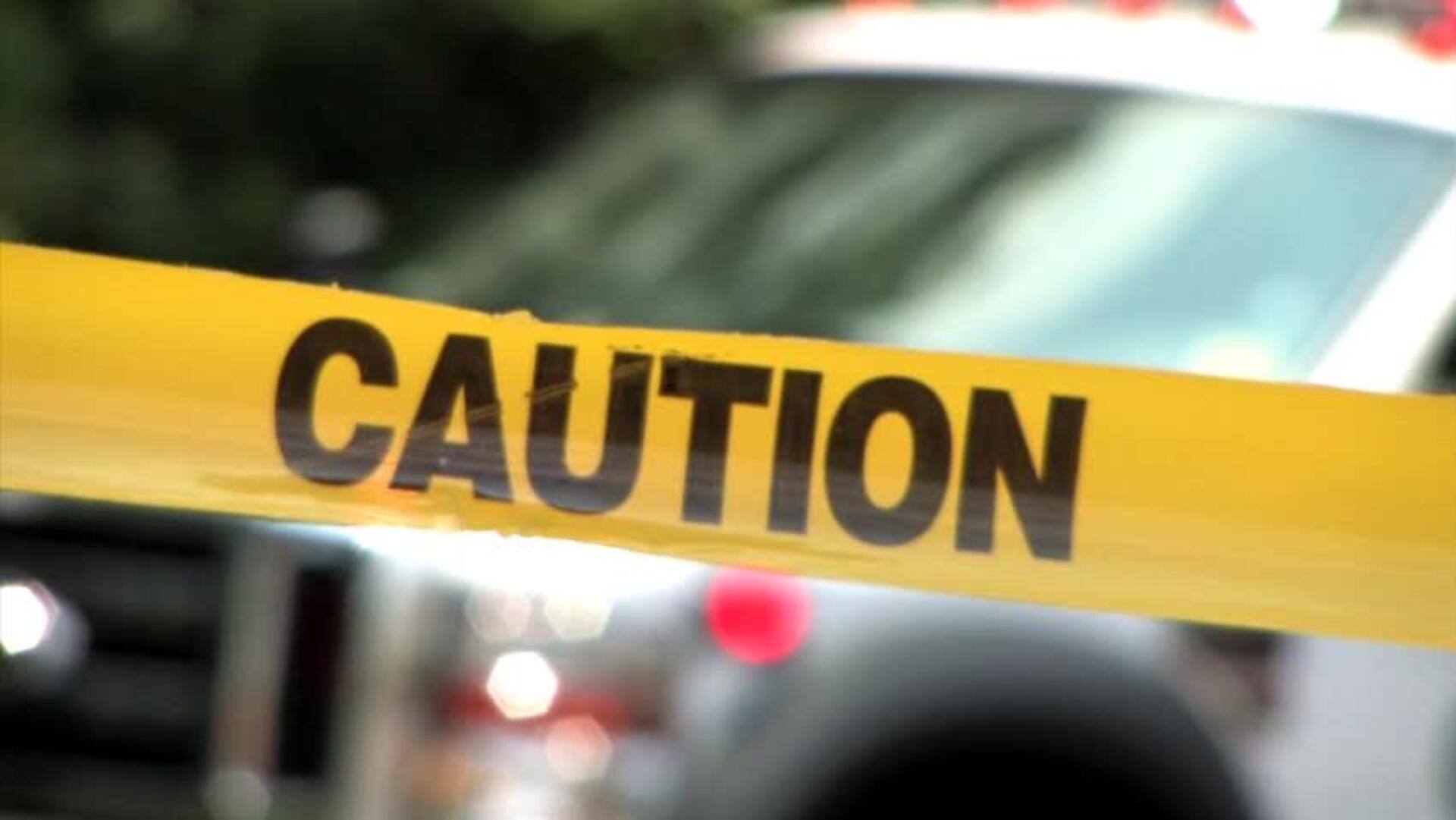Jurisdiction Dispute Over Accident Victim left a 27-year-old man’s body on the road for hours, sparking outrage among locals. The victim, Rahul Ahirwar, was hit by an unidentified vehicle on the Uttar Pradesh-Madhya Pradesh border. The tragic incident escalated when police from Mahobkanth police station in Uttar Pradesh’s Mahoba district and Harpalpur police station in Madhya Pradesh failed to agree on which jurisdiction the case belonged to.
While the victim’s body lay unattended, the two police departments engaged in a prolonged disagreement, neglecting their duty to ensure prompt action. It was only after locals staged a protest that the Madhya Pradesh police eventually recovered the body and sent it for an autopsy. This incident has raised serious questions about police accountability, inter-state coordination, and the handling of emergencies.
The Tragedy Of Bureaucratic Delays
The death of Rahul Ahirwar is a heartbreaking example of how bureaucratic inefficiencies can exacerbate human tragedy. Jurisdiction disputes between police departments are not uncommon, especially in cases that occur near state borders. However, this particular incident stands out for its blatant disregard for basic human dignity and timely action.
Leaving a body on the road for hours not only disrespects the deceased but also causes immense trauma to the victim’s family and the community. Such delays can also compromise evidence, making it harder to investigate the accident and bring the responsible parties to justice.
A Growing Concern: Jurisdiction Disputes In India
Jurisdiction disputes between police departments have been a recurring issue in India, often leading to delays in justice and administrative inefficiency. State borders, particularly those with frequent cross-border movement, pose a unique challenge for law enforcement. Instead of cooperating, police departments sometimes engage in turf wars, prioritizing their jurisdictional boundaries over their responsibility to the public.
In this case, the lack of clarity and coordination between the UP and MP police departments highlights the pressing need for systemic reforms to address such disputes. Standard operating procedures (SOPs) must be established to ensure immediate action in emergencies, regardless of jurisdiction.
The Role Of Public Protest
Locals in the area played a pivotal role in ensuring that action was taken in this case. Frustrated by the police’s inaction, they staged a protest to demand accountability and justice for the victim. Public pressure often serves as a catalyst for action in cases of administrative negligence.
While the intervention of the Madhya Pradesh police eventually resolved the matter, the fact that it required public protest to prompt action underscores the need for greater accountability within the system. Authorities must address the root causes of such lapses to prevent similar incidents in the future.
Impact On Victims And Families
For the family of Rahul Ahirwar, the jurisdiction dispute added an extra layer of grief to an already devastating loss. Losing a loved one in a road accident is a traumatic experience, and the failure of authorities to act with urgency only deepens the pain.
Such incidents also erode public trust in law enforcement and governance. When people perceive that basic responsibilities like recovering accident victims are neglected, they lose faith in the system’s ability to protect and serve them. Restoring this trust requires not just apologies but concrete steps to improve responsiveness and efficiency.
The Need For Inter-State Coordination
The UP-MP border, like many other state borders in India, sees significant vehicular traffic and frequent accidents. Effective coordination between state police departments is crucial to managing such incidents.
One possible solution is the establishment of joint task forces for border areas, comprising representatives from both states. These task forces could be empowered to take immediate action in emergencies, bypassing jurisdictional disputes. Regular training sessions and drills could also help foster better collaboration between police departments.
Legal And Administrative Reforms
Addressing jurisdiction disputes requires both legal and administrative reforms. The implementation of a centralized reporting system for accidents and crimes near state borders could streamline communication and reduce delays.
Additionally, clear guidelines must be established to ensure that the first responding police department takes immediate action, regardless of jurisdiction. Once the immediate needs—such as recovering victims or securing evidence—are addressed, jurisdictional issues can be resolved administratively.
Public Reaction To The Incident
The incident has sparked widespread outrage, with many criticizing the police for their inaction and lack of empathy. Social media platforms have been flooded with calls for accountability, with users demanding that those responsible for the delay face disciplinary action.
The broader conversation has also highlighted the need for systemic changes to prevent such incidents. Public pressure has often been a driving force for reforms, and the outcry over this case may prompt authorities to take corrective measures.
A Call For Accountability
The tragic death of Rahul Ahirwar and the subsequent inaction by the police serve as a stark reminder of the need for accountability in governance. Jurisdiction disputes should never come at the expense of human life and dignity.
Authorities must take this incident as a wake-up call to prioritize responsiveness and collaboration over bureaucratic boundaries. By addressing these systemic issues, India can move closer to a more compassionate and efficient system of governance.



